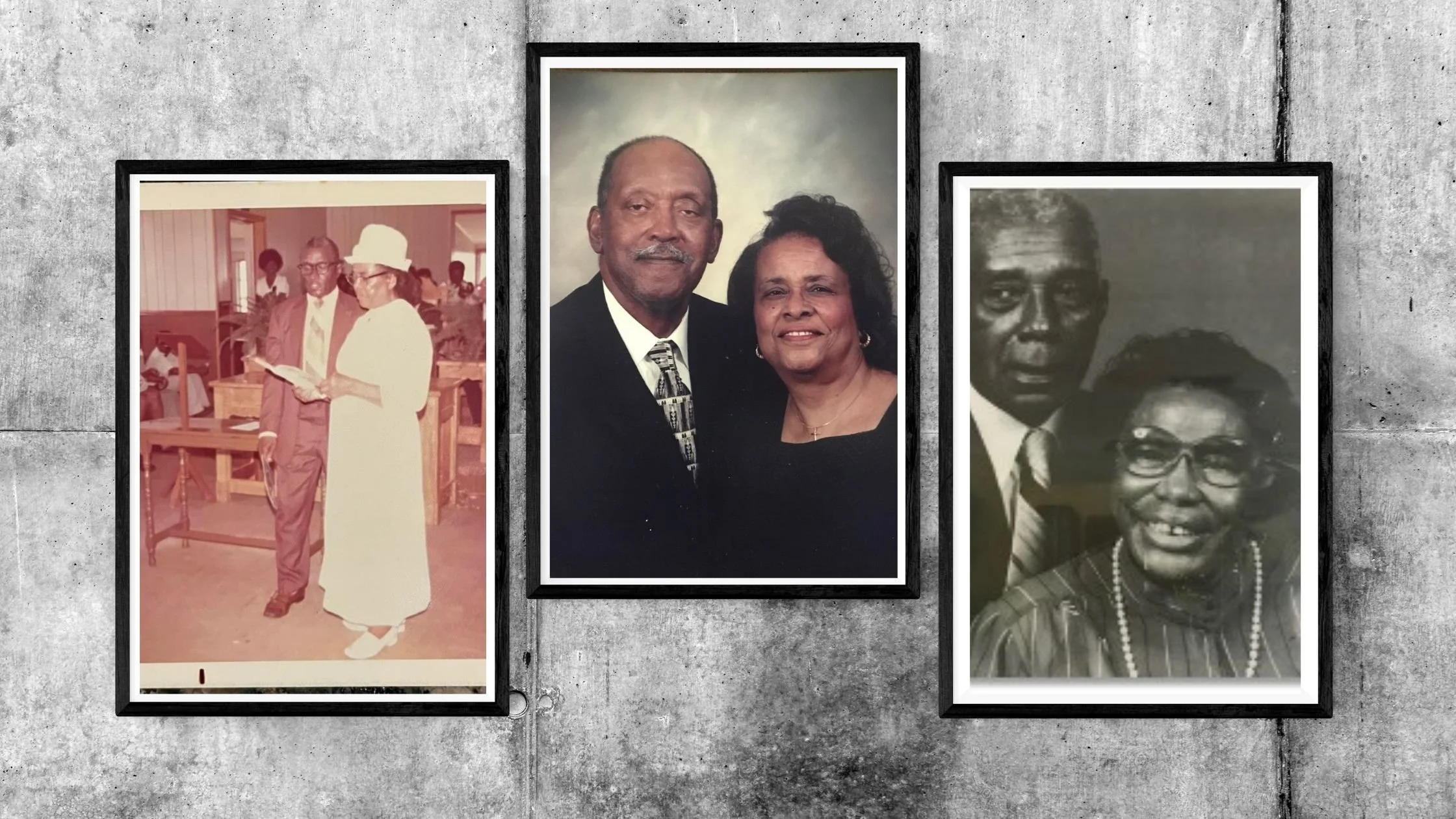Navigating Grief and Legacy
Understanding the Interconnection of Grief and Legacy, During Times of Transition: Estate Planning, Probate, and Elder Law
Grief is a universal experience that we all face in times of loss. Whether we encounter the death of a loved one or experience significant life changes, understanding grief is essential, particularly in the realms of estate planning and elder law. In a recent webinar with Deere Law Firm Chioma R. Deere, Esq., we explored how estate planning, elder law, and probate are deeply intertwined with our experiences of grief and legacy.
Grief Is
Over time, I have grown to understand that grief is more than just sorrow; it is a natural response to loss that encompasses a range of emotional reactions. It can feel overwhelming, and often, we find ourselves reluctant to confront the “elephant in the room.” As a community or group, we experience collective grief and tend to hold back or inhibit grief due to cultural norms and long-taught falsehoods about how we should grieve. Like so many, I found myself in this place, which increased the impact of grief. After many, many hours in silence, studying, meditation, Prayer, and self-examination, I derived at a few truths:
The way through my grief was indeed to face and feel grief; the raw truth is the challenges I faced also contained the answers within. The solution was found in self-reflection, and my life's joy was my responsibility. Nothing outside of myself mattered to my grief.
Every person grieves differently, and there is no right or wrong way to grieve.
I was liberated, discovering that grief is integrated into daily life and has become the norm of each season.
It has shown that I could move to resilience and a higher, more authentic version of myself through pain.
Now, I am at a point where I cannot return to the former; I am free to feel and just BE.
Grief is messy and unpredictable, encompassing fear, sadness, anger, shock, and joy. Each person's experience is unique; some may resort to isolation as they process their grief. The webinar highlighted several types of grief, including:
Disenfranchised: Grief that goes unrecognized, often due to stigmatized losses.
Anticipatory: The emotional experience of preparing for a loss while a loved one is still alive, which is familiar with chronic or terminal illnesses.
Prolong: Resulting from multiple losses (compound-complex), leading to prolonged psychological challenges recognized in the DSM-5 (Diagnostic and Statistical Manual of Mental Disorders).
Impact of Unresolved Grief
Significant losses create emotional complexities that can complicate legal matters. It’s crucial to allow yourself to feel grief openly rather than masking the pain. Unresolved grief can impact every aspect of life, leading to chronic stress and health issues, including heart disease and high blood pressure. Emotionally, unresolved grief may manifest as ongoing sadness, anxiety, and irritability, which can hinder daily activities. Furthermore, social connections can suffer, especially for those who conceal their grief, often resulting in increased loneliness. When grief remains unresolved for over a year, it may raise the risk of developing further psychological challenges and may align with the diagnosis of prolonged Grief Disorder or DSM-5.
Coping Strategies for Grief
There is no one-size-fits-all approach to coping with grief; what offers relief for one person may not work for another. Here are some coping strategies highlighted in the webinar:
Faith + Prayer + Action: Engage actively; faith without works is dead (James 2:14-17).
Practicing Self-Care: Engage in meditation, mindfulness, journaling, and physical exercise to promote healing.
Being Honest: Openly acknowledge your feelings to foster genuine connections.
Living a Balance Life: Allocate time across personal values, ensuring a well-rounded life that includes faith, family, friends, and work.
Seeking Support: Professional coaching or therapy can provide crucial guidance and support throughout the estate planning journey.
Honoring and Preserving the Gift of Legacy
Reflecting on my own family, my father was a storyteller. I cherished the moments spent together, singing and engaging in family prayers while listening to his stories filled with love and sorrow. My mother, a master in the kitchen, was a steadfast source of strength and support for our family. She was a solid rock and stood on her core values.
Through their stories, I have inherited beautiful memories that resonate with me and my children. Legacy extends beyond material possessions; it embodies the values, traditions, and shared experiences that shape who we are. Preserving their legacy through stories, photos, and recorded memories allows us to honor the past while fostering a connection with future generations.
Creating Safe Spaces for Conversations on Legacy
I value the approach of my parents. Despite some missing elements, they clarified who would do what and how, making the execution of their wishes lighter as we grieve their deaths. We managed the process with regular communication on critical topics. To ensure the legacy of our loved ones endures, we must create safe environments for discussing end-of-life matters. Here are some tips for nurturing these critical conversations:
Choose the Right Environment: Opt for a comfortable, private location to encourage honest dialogue.
Set Clear Intentions: Clearly define the purpose of the discussion upfront.
Practice Active Listening: Encourage open communication without interruptions.
Use Open-Ended Questions: Foster deeper conversations to uncover varying perspectives.
Acknowledge Emotions: Allow feelings to emerge naturally during discussions.
Balancing honoring the past while embracing the present and protecting the future involves crafting legal structures—wills and trusts—that safeguard personal assets and ensure they align with individual wishes. It also requires understanding grief education as we seek to preserve meaningful legacies.
The Importance of Estate Planning
Estate planning is a crucial process that requires preparing to manage and transfer an individual's assets after death. It provides peace of mind, ensures personal wishes are honored, and reduces conflicts among family members. Chioma R. Deere, Esq. suggests at the minimum to have the below key components of estate planning in place:
Living or Revocable Trust and/or Will: Legal documents that outline how assets should be managed and distributed, potentially minimizing taxes and avoiding probate, which helps create a smoother wealth transition.
Power of Attorney: Designating a trusted individual to make medical or financial decisions on your behalf if you become incapacitated. This ensures that your affairs are handled according to your wishes.
Health care surrogate/power: Documents that communicate your medical preferences if you cannot express them yourself. This provides clarity to healthcare providers and loved ones about your care choices.
Pre-need guardian/conservator designation: This is important for parents with minor children; these designations specify who will care for your children if both parents cannot fulfill that role, ensuring their safety and well-being.
Beneficiary designations on all accounts are necessary for the following reasons: They allow for the direct transfer of assets, clarity, control, avoidance of intestacy laws, and simplifying estate planning. Having beneficiary designations helps ensure your assets are distributed according to your wishes, streamlines the process for your heirs, and can provide financial and legal benefits.
By engaging in proper estate planning, individuals can protect their legacies, minimize the burden on their loved ones during difficult times, and ensure their wishes are honored as they transition into the next phase of life, providing comfort and security for themselves and their families.
Understanding and implementing these components of estate planning fosters peace of mind and encourages open discussions about legacy and grief, ultimately allowing for a more compassionate approach to life transitions.
The Intersection of Life, Grief, and Estate Planning
Grief is a natural response to loss, whether it be the passing of a loved one or significant life changes that alter our reality. As we confront our grief, we may find it challenging to focus on the practical aspects of estate planning. This is where the guidance of a professional coach who focuses on grief becomes invaluable.
Taking the Next Step
Incorporating life and grief coaching into your estate planning journey is empowering. By gaining emotional clarity and support, you can navigate the complexities of grief and practical planning with confidence and purpose. If you are considering estate planning, don't hesitate to ask for coaching support. With this support, you can honor your emotions, engage in meaningful conversations, and create an estate plan that reflects your legacy.
Remember, your story matters. Let's ensure that your legacy is built on love, clarity, and understanding, embracing life and the inevitable transitions that come with it.
Anna L. Woods, M.Min.
Professional Coach
Trauma-informed Resilience, Life & Grief Certified Coach
For more information on Professional Coaching, Contact Anna@al-woods.com
For more information on Estate Planning, Probate, and Elder Law, Chioma R. Deere, Esq., would be happy to assist!
Contact Deere Law Firm https://www.deere-law.com.
To listen to the webinar, click: https://youtu.be/0iF0ow6CWMw
#GriefCoaching #EstatePlanning #Legacy #LifeTransitions #EmotionalWellness #Support #Motivation


